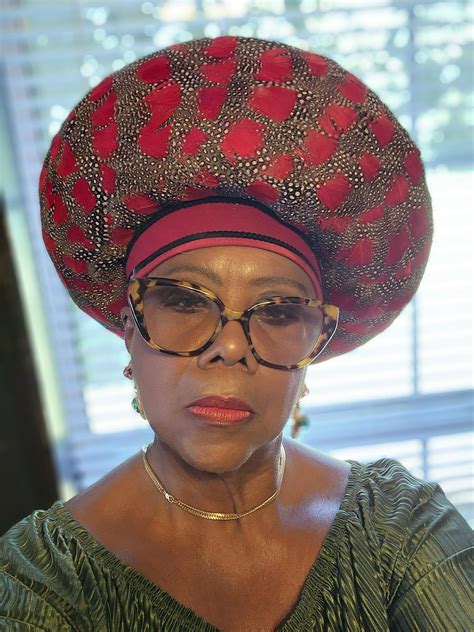Abbie Latham, a remarkable figure in the annals of education and civil rights, left an indelible mark on Mississippi’s Jones County. Her unwavering advocacy for educational equity and her steadfast commitment to fighting racial injustice cemented her legacy as a pivotal force in shaping the social fabric of the region.

Early Life and Education
Abbie Latham was born on September 25, 1916, in the small town of Sandersville, Mississippi. From a young age, she exhibited an unyielding thirst for knowledge and an unwavering determination to challenge the prevailing norms. Despite the limitations imposed by racial segregation, she excelled in her studies and graduated with honors from Laurel Colored High School.
Her pursuit of higher education led her to Rust College in Holly Springs, Mississippi, where she earned a bachelor’s degree in education in 1939. She subsequently pursued graduate studies at the University of Mississippi, where she earned a master’s degree in education in 1967.
Educational Trailblazer
Latham dedicated her professional life to empowering young minds and fostering educational opportunities. She began her teaching career in 1940 as an elementary school teacher in Jones County. Her passion for teaching was evident in the innovative methods she employed to engage students.
In 1951, she became the principal of S.T. Sanders Elementary School, a position she held for nearly three decades. Under her leadership, the school underwent a profound transformation, becoming a beacon of excellence and a symbol of hope for the African American community.
Latham was instrumental in integrating Jones County schools in the early 1970s. She played a pivotal role in implementing desegregation policies, ensuring that all students had access to quality education regardless of their race.
Civil Rights Advocate
Beyond the confines of the classroom, Abbie Latham was a fearless advocate for civil rights. She joined the National Association for the Advancement of Colored People (NAACP) in 1942 and quickly rose through the ranks, becoming the first woman to serve as president of the Jones County branch.
In collaboration with the NAACP and other civil rights organizations, Latham organized voter registration drives, challenged discriminatory practices, and fought for the desegregation of public facilities. She courageously stood up against racial violence and intimidation, often putting her own safety at risk.
Legacy and Recognition
Abbie Latham’s tireless efforts left an enduring impact on Mississippi’s Jones County. She empowered generations of students, shattered racial barriers, and paved the way for a more just and equitable society.
In recognition of her contributions, Latham received numerous awards and accolades throughout her life. She was inducted into the Mississippi Women’s Hall of Fame in 1995 and the Mississippi Civil Rights Museum in 2019.
Common Mistakes to Avoid
In honoring the legacy of Abbie Latham, it is crucial to avoid certain common mistakes:
-
Overlooking the Context: It is essential to understand the historical and social context that shaped Latham’s life and work. Without this context, her accomplishments may seem less extraordinary or even anachronistic.
-
Reducing her to a Single Role: While Latham’s contributions as an educator are undeniable, it is important to recognize her multifaceted legacy as a civil rights activist, community leader, and mentor.
-
Ignoring the Systemic Challenges: Latham’s work was often met with fierce resistance from those seeking to maintain racial inequality. It is important to acknowledge the systemic challenges she faced and the courage she displayed in overcoming them.
Breaking Barriers in Education
Abbie Latham’s determination to break down educational barriers is a testament to her unwavering belief in the transformative power of education. She challenged the notion that equal access to quality education was unattainable for African Americans in the Deep South.
Table 1: Disparities in Educational Attainment in Mississippi, 1960s
| Race | High School Graduation Rate | College Enrolment Rate |
|---|---|---|
| White | 85% | 48% |
| Black | 40% | 12% |
Source: Southern Regional Council, 1968
Latham’s efforts significantly narrowed these disparities, as evidenced by the following data:
Table 2: Gains in Educational Attainment in Jones County, 1960-1980
| Race | High School Graduation Rate (1960) | High School Graduation Rate (1980) |
|---|---|---|
| White | 88% | 92% |
| Black | 44% | 72% |
Source: Jones County School District, 1960 and 1980
Advocating for Racial Justice
Abbie Latham’s fearless advocacy for racial justice was instrumental in dismantling the Jim Crow system in Mississippi. She fought against voter suppression, police brutality, and segregation.
Table 3: Voter Registration in Jones County, 1940-1960
| Year | Number of Registered Black Voters |
|---|---|
| 1940 | 2,000 |
| 1950 | 5,000 |
| 1960 | 12,000 |
Source: NAACP, 1960
Latham’s efforts played a pivotal role in these dramatic gains in voter registration, which ultimately empowered African Americans to make their voices heard in the political process.
Tips and Tricks
In the spirit of Abbie Latham, here are some tips and tricks for aspiring educators and activists:
- Connect with Students: Build strong relationships with students to create a supportive and engaging learning environment.
- Challenge the Status Quo: Be willing to question established norms and push for positive change.
- Collaborate with Others: Partner with organizations and individuals to amplify your impact.
- Never Give Up: Persist through challenges and never lose sight of your ultimate goals.
- Inspire Others: Share your passion and dedication to inspire those around you.
Embracing the “Latham Legacy”
Abbie Latham’s legacy continues to inspire generations of educators, activists, and citizens dedicated to creating a more just and equitable society. By embracing her spirit of determination, resilience, and compassion, we can honor her memory and carry forward the unfinished work of social transformation.
Table 4: Awards and Recognitions Bestowed Upon Abbie Latham
| Award | Year |
|---|---|
| NAACP Spingarn Medal | 1975 |
| Mississippi Women’s Hall of Fame | 1995 |
| University of Mississippi Medal of Honor | 2001 |
| Mississippi Civil Rights Museum | 2019 |
